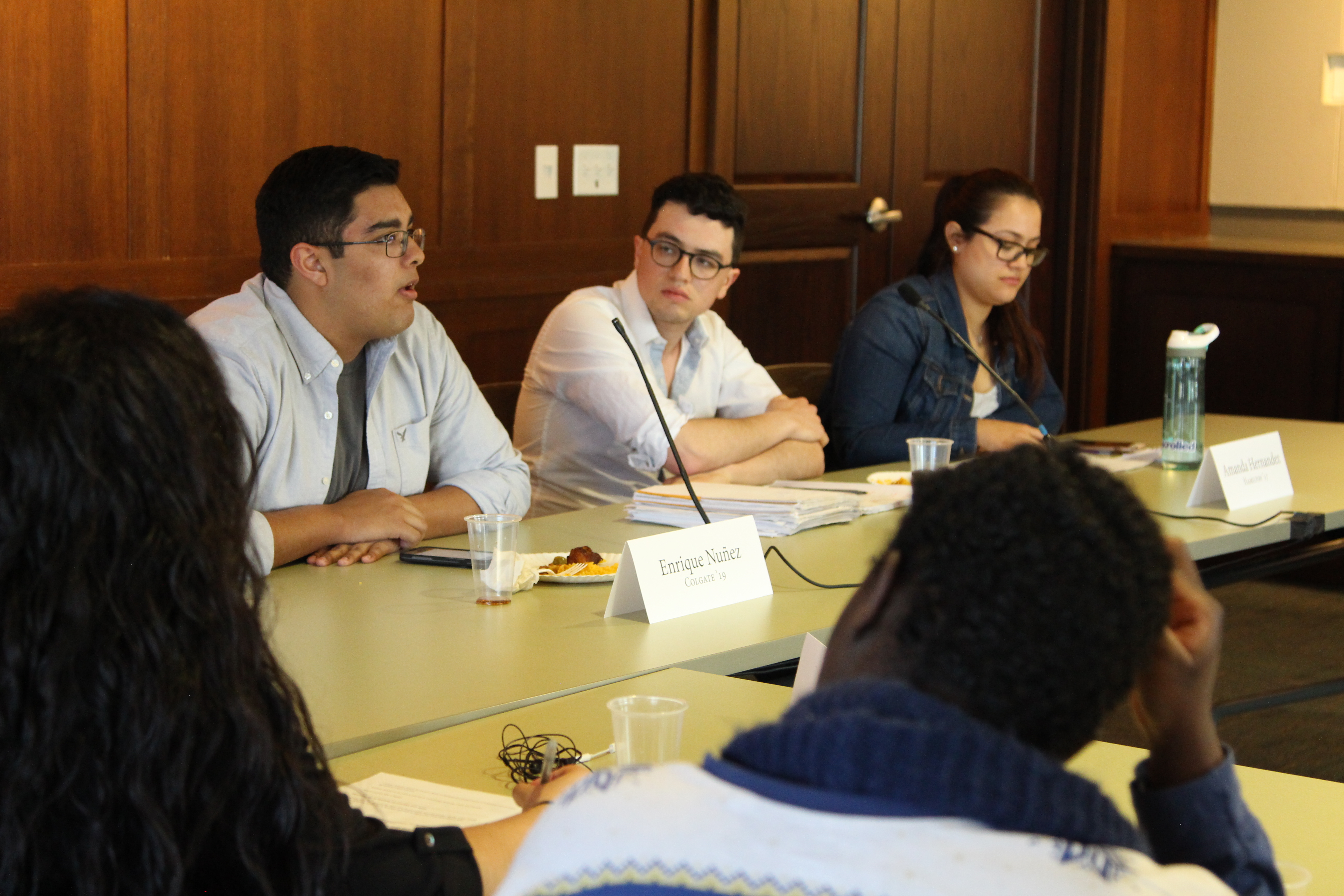News
La Vanguardia hosts border panel
By Gabriela Foster '18
April 20, 2017
Tags news
This past week, La Vanguardia hosted a two-part panel addressing the current political climate regarding borders and immigration. The first segment featured Assistant Professor of Government Heather Sullivan and Associate Professor of Africana Studies Nigel Westmaas, who discussed the economic, historical and humanitarian impacts of borders, specifically along the U.S.-Mexico line. The second segment featured two Hamilton students, Amanda Hernandez ’17 and Cesar Renero ’17 and one student from Colgate, Enrique Nuñez ’19, who shared their personal experiences with borders.
Since Trump took office, borders have been a point of national contention. The panel sought to create a space of open dialogue concerning immigration and borders for the greater campus community. According to Amanda Hernandez ’17, the goal of the panel focused on creating “a better understanding of the politics of borders and the gap between political goals and real life implications.” Connecting politics and people in power to the reality of coming to America and the struggle of immigrants is necessary to creating comprehensive policy in the future.
Professors Sullivan and Westmaas started the conversation by outlining the benefits of maintaining borders for states and civilians, the economic implications of borders and how borders dehumanize individuals. Professor Westmaas continued by discussing borders through a historical perspective. Both suggested that maintaining borders provides stability by creating a sense of group identity, or nationality.
Borders create an “other” for the nation to unite against. Much of far right rhetoric has revolved around hatred for those who compose this “other.” They also provide a form of bargaining power for nation states controlling certain resources and on the market. Sullivan reiterated that borders, at their base level, are forms of controlling territory.
Examining immigration was an integral part of the border discussion. In 2014, there were 11.1 million undocumented immigrants in the U.S. Professor Sullivan discussed the idea that, despite their undocumented status, immigrants have significant influences on the U.S. economy. By spending money, immigrants are stimulating the larger market. In being undocumented, however, they do not pay taxes. Sullivan also alluded to the fact that the U.S. lacks labor forces that immigrants readily provide. Additionally, she discussed the importance of remittances, or sending money back to family that stayed in the country of origin.
The second portion of the panel addressed the personal experiences of students who had experienced firsthand the power of borders. Many indicated that coming to America from South and Central America has been a very difficult journey. As the first generation to come, they feel that they are carrying the hopes and dreams of their families. Students shared powerful stories of fleeing violence in El Salvador or seeking educational opportunities not present in Mexico. Panelists stated that, before coming to America, they envisioned a land of opportunity. Upon arrival, however, finding jobs and a home was increasingly difficult.
Global discussions over borders has been highly dehumanized, but the second panel helped put faces to a story. For those in attendance, the conversation was a step in the right direction. Sophomore Ifeoluwa (Iffy) Aiyelabowo responded to the talk stating that students should “solidify their opinions concerning immigration, not only by reading up on issues concerning immigration but also by discussing such issues with those who are undocumented or whose parents are undocumented.” Much work needs to be done to protect the human rights of immigrants as they seek better lives and opportunities.





